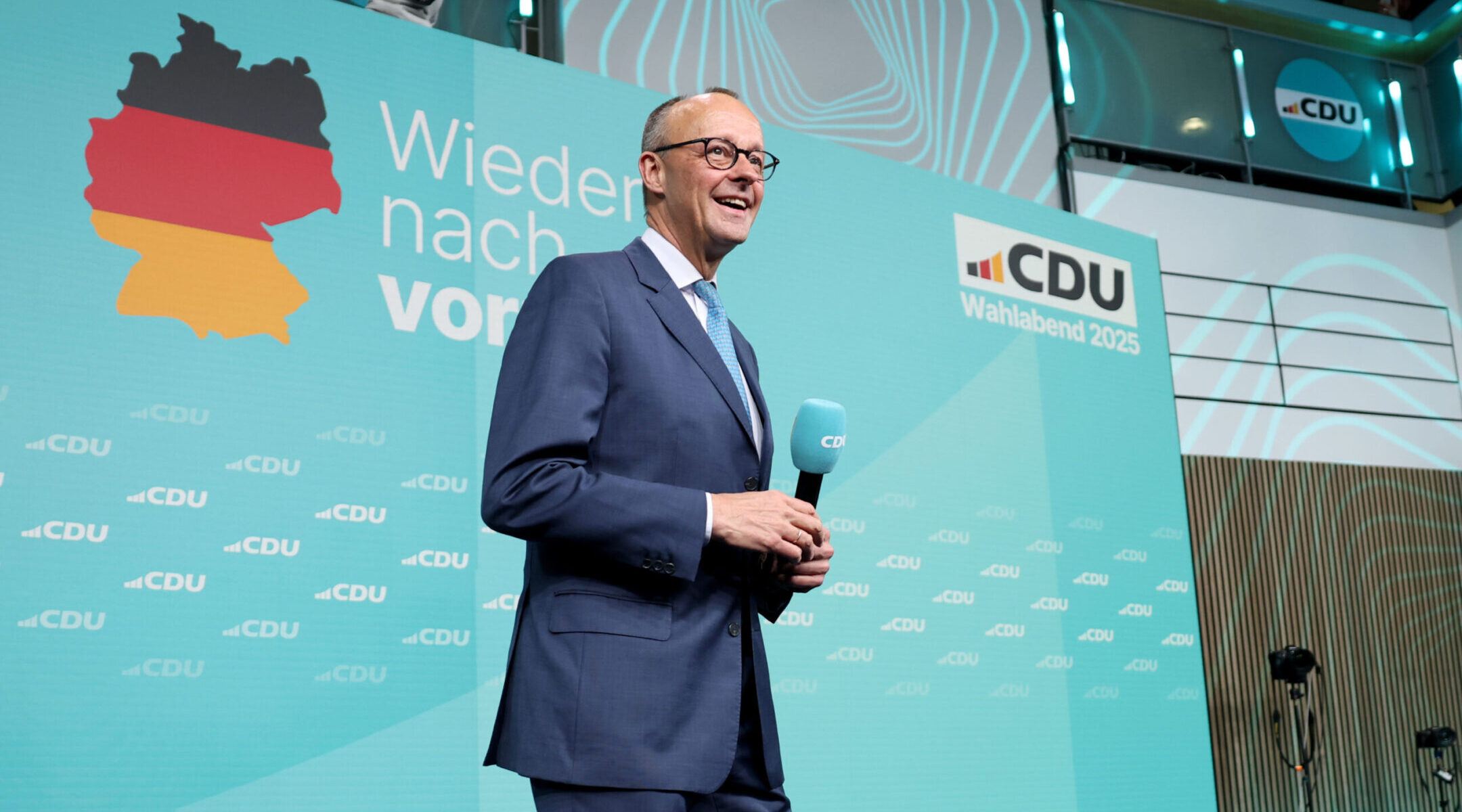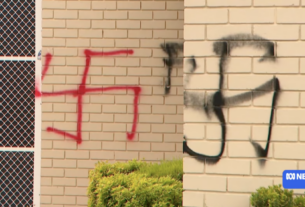The far-right Alternative for Germany came in second place in German elections Sunday, taking a record 21% in a vote won by the center-right.
But Alternative for Germany, known as AfD, is unlikely to join Germany’s governing coalition. The party that won the election, the Christian Democratic Union, has pledged to boycott AfD — despite a speech by U.S. Vice President J.D. Vance earlier this month urging German politicians to cooperate with the far right.
The victory by the Christian Democratic Union signaled a rightward turn in German politics. Frederick Merz, the party’s leader, said he would move quickly to form a government — which preliminary results show he could achieve by partnering with just a single centrist party, the liberal Social Democrats, whose leader Olaf Scholz is the current chancellor.
AfD had worried many in Germany and beyond, including local Jews, with its pro-Russia and anti-immigrant platform as well as its extremist rhetoric and minimization of the Holocaust. The party is led by Alice Weidel, and its supporters routinely chant “Alice fur Deutschland,” a play on “Alles fur Deutschland,” which was a Nazi slogan.
The support the party has received from Trump administration officials, including Vance and Elon Musk, galvanized attention but did not appear to change AfD’s trajectory at the polls.
Still, the party’s preliminary tally represented by far the best showing for a far-right party in national elections since World War II.
“We must all be concerned that a fifth of German voters cast their vote for a party that is at least partially right-wing extremist, which, linguistically and ideologically, openly seeks connections to right-wing radicalism and neo-Nazism, plays on people’s fears and only offers them apparent solutions,” Josef Schuster, head of the Central Council of Jews in Germany, said in a statement urging a “stable government” operating from the political center.
“The fears have come true: A fifth of voters are sending a right-wing extremist and antisemitic party into the German Bundestag. This is a warning signal,” said Charlotte Knobloch, the council’s former head who is a Holocaust survivor, in her own statement. “From today on, Germany is a different country.”
Another extreme party, the far-left Die Linke, finished far better than expected, nabbing 9% of the vote total and an estimated 64 seats in the Bundestag, Germany’s parliament. The party’s showing followed internal divisions over Israel and Germany’s handling of antisemitism. (A spinoff party that declared Israel’s war in Gaza a “genocide” did not receive enough votes to enter parliament.)
In a victory address, Merz said he would seek to “achieve independence” from the United States, signaling a major reorientation in European politics.
“The interventions from Washington were no less dramatic and drastic and ultimately outrageous than the interventions we have seen from Moscow,” Merz told supporters late Sunday. “We are under such massive pressure from two sides that my top priority is to create unity in Europe.”
He added, “I would never have believed that I would have to say something like that on television. But at the very least, after Donald Trump’s statements last week, it is clear that the Americans – at least this part of the Americans in this administration – are largely indifferent to the fate of Europe.”
Merz has also said that he plans to deepen Germany’s considerable support for Israel. Israeli Prime Minister Benjamin Netanyahu said on Monday that he had spoken to Merz to congratulate him and that Merz had again said he would invite Netanyahu to visit Germany despite an International Criminal Court warrant for Netanyahu’s arrest in conjunction with the Gaza war. Scholz had indicated that he would comply with the warrant.
Keep Jewish Stories in Focus.
JR has documented Jewish history in real-time for over a century. Keep our journalism strong by joining us in supporting independent, award-winning reporting.




